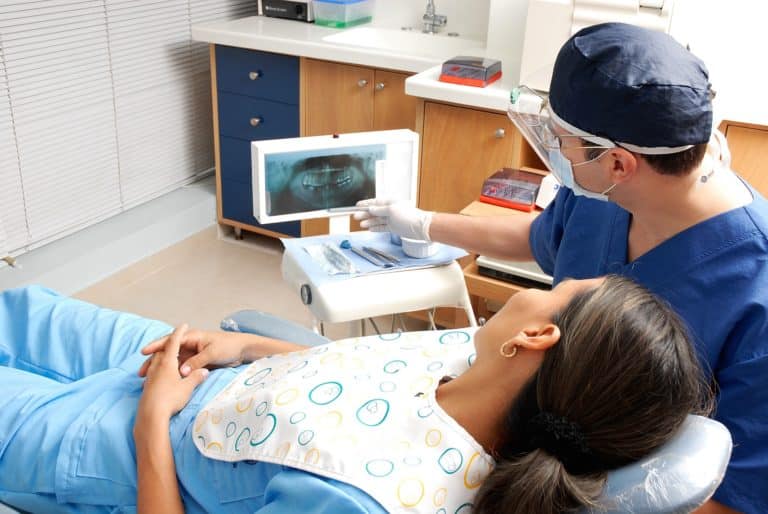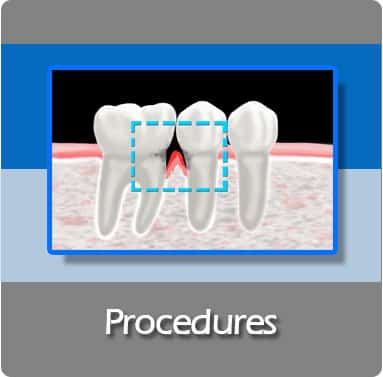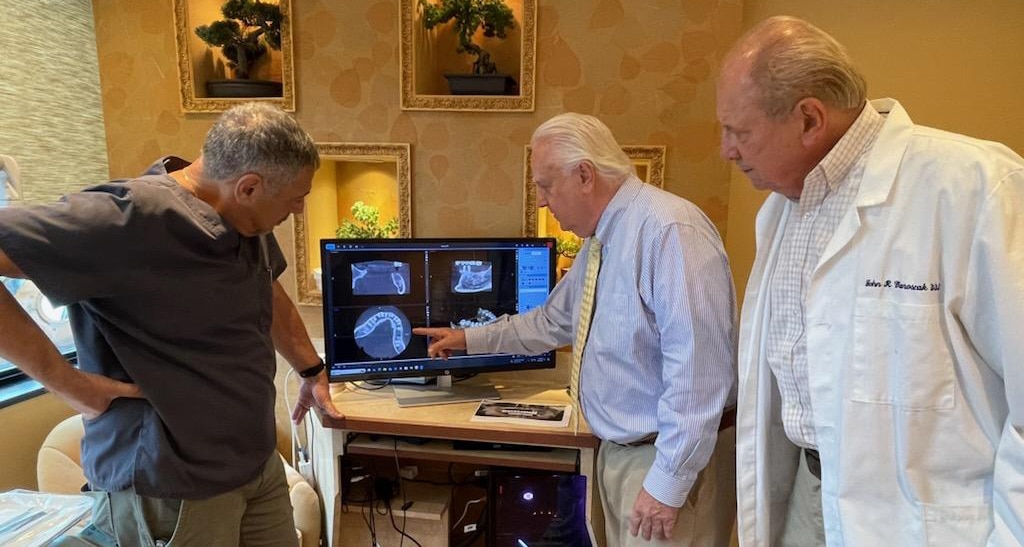PERIODONTAL TREATMENT / GUM DISEASE

Periodontal (gum) disease can quietly damage the foundation of your teeth and affect your overall health. What begins as plaque along the gumline can progress into aggressive bacteria that destroy bone and tissue, leading to tooth loss and chronic inflammation.
Early diagnosis and consistent care are essential. Dr. Varoscak offers specialized periodontal maintenance to control infection, reduce inflammation, and help prevent disease from progressing. These targeted visits go beyond routine cleanings and are vital for protecting long-term gum and bone health.
Schedule an evaluation with our periodontist to detect early signs of gum disease and see if periodontal maintenance with Dr. Varoscak is right for you. A simple visit now can help preserve your smile for years to come.

DR. JOHN VAROSCAK

LEARN THE SIGNS AND SYMPTOMS OF PERIODONTAL DISEASE

There are well known warning signs of periodontal disease. However, periodontal disease can progress without any signs or symptoms. That is why it is very important to have regular dental check-ups and periodontal screenings.
Gingival inflammation and bone destruction are often painless, and many individuals experience little or no discomfort in the early stages of periodontal disease. Often the disease has progressed significantly before an individual realizes there is a problem or seeks treatment.
Call our office at 201-447-9700
DR. JOHN VAROSCAK
PERIODONTIST
A dentist with an advanced training in gum conditions and problems associated with teeth and oral conditions.

Whether you suffer from bleeding gums, mild gingivitis,or advanced gum disease, our renowned Columbia University trained periodontist, Dr. John R. Varoscak, has been providing periodontal services for patients from the Northeast for over 30 years.
Quick Facts
Signs and Symptoms of Periodontal Disease
1. Bleeding gums
2. Sore or swollen gums
3. Loose teeth
4. Gum recession
5. Chronic bad breadth
6. Pus around teeth
7. Pain upon chewing
8. Recent bite change
9. Spaces between teeth
10 Food accumulation in gums
If you have one or more of these symptoms, you may have periodontal disease.

PERIODONTAL PROCEDURES
There are numerous nonsurgical and surgical procedures used to treat periodontal disease and which result in beautiful, healthy smiles. Our periodontal services include, but are not limited to, the following procedures:
MEDICAL CLEARNANCE FOR SURGERY, SCALING AND ROOT PLANING, POCKET REDUCTION SURGERY, OSSEOUS SURGERY, BONE GRAFTING AND GUIDED TISSUE REGENERATION, RIDGE AUGMENTATION, SOFT TISSUE GRAFTS, GINGIVECTOMY & GUMMY SMILES, CROWN LENGTHENING, TOOTH EXTRACTION AND RIDGE PRESERVATION, PRE-PROSTHETIC SURGERY, APICOECTOMY
CONTROLLING PERIDONTAL DISEASE
Maintaining good oral health goes beyond brushing teeth a couple of times a day, daily flossing and the use of a good mouthwash. Even by being scrupulous with at home hygiene, over time, bio film (plaque) will adhere to teeth and harden. The plaque will form in hard to reach areas, creating pockets where bacteria can grow, requiring a professional cleaning. It is the excess accumulation of bacteria that causes the local periodontal tissue to become inflamed (gingivitis). If left untreated, gingivitis will progress to a more chronic condition, periodontitis (periodontal disease). When inflammation is present, oral bacteria and its byproducts, called endotoxins, can enter the general blood circulation. It is the body’s secondary inflammatory response to these circulating bacteria that is implicated in the complication of many medical conditions and diseases. The goal of periodontal treatment is to remove inflammation-causing bacteria from the mouth, thereby preserving tooth health and decreasing overall systemic inflammation.
Behavioral and biological risk factors also play a role in the progression of periodontal disease. These include:
Smoking or chewing tobacco
Stress Family history of periodontal disease
Ill fitting fillings, crooked teeth, food impaction areas
Medications
Other systemic diseases

